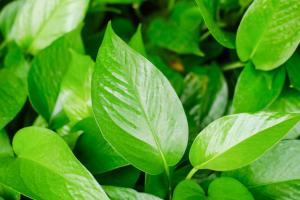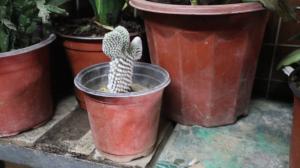Introduction
Black walnut trees are known for their beautiful wood and delicious nuts, but did you know they also release a toxin that can harm neighboring plants? Many gardeners struggle to find plants that can survive and thrive near black walnut trees. In this article, we will explore what plants will grow well near black walnut trees.
The Toxin
The toxin released by black walnut trees is called juglone. It is found in all parts of the tree but is primarily concentrated in the roots and hulls of the nuts. Juglone is toxic to many plants, making it difficult to establish a garden near a black walnut tree. The toxin inhibits the growth and development of susceptible plants, eventually leading to their death.
Plants That Are Resistant to Juglone
Despite the challenges of growing plants near black walnut trees, there are some species that are resistant to juglone. These include:
Barberry (Berberis spp.)
Bee balm (Monarda spp.)
Black-Eyed Susan (Rudbeckia spp.)
Coneflowers (Echinacea spp.)
Daylilies (Hemerocallis spp.)
Lungwort (Pulmonaria spp.)
Sage (Salvia spp.)
Spotted dead nettle (Lamium maculatum)
Yarrow (Achillea spp.)
These plants are known to survive and even thrive near black walnut trees. However, it is important to note that they may still be affected by the proximity to the tree and may not grow as well as they would in another location.
Plants That Are Sensitive to Juglone
Many popular garden plants are sensitive to juglone and should be avoided when planting near black walnut trees. These include:
Tomatoes (Lycopersicon esculentum)
Peppers (Capsicum annuum)
Eggplants (Solanum melongena)
Potatoes (Solanum tuberosum)
Blueberries (Vaccinium spp.)
Peonies (Paeonia spp.)
Roses (Rosa spp.)
Hydrangeas (Hydrangea spp.)
Azaleas (Rhododendron spp.)
These plants are known to be very sensitive to juglone and will likely not survive near a black walnut tree. If you want to grow these plants, it is best to plant them away from the tree or in an area where the soil has been amended to remove the toxicity.
Conclusion
Black walnut trees are beautiful and valuable, but they can make it difficult to garden in their vicinity. However, by choosing the right plants and avoiding those that are sensitive to juglone, you can create a thriving garden even in the presence of these trees. With a little research and careful planning, you can turn a challenging gardening situation into a successful one.

 how many times do yo...
how many times do yo... how many planted tre...
how many planted tre... how many pine trees ...
how many pine trees ... how many pecan trees...
how many pecan trees... how many plants comp...
how many plants comp... how many plants can ...
how many plants can ... how many plants and ...
how many plants and ... how many pepper plan...
how many pepper plan...
































